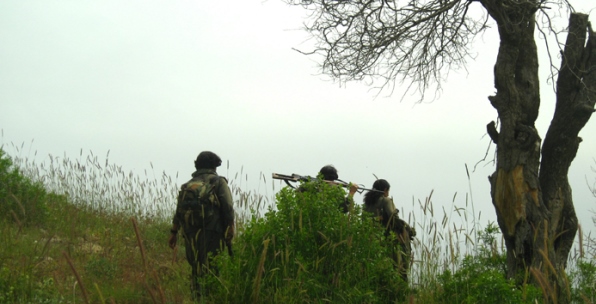It should be admitted that the camp of “the process has already collapsed” seemed quite active during the 2009 initiative process and the 2103 resolution process. This camp, which came to existence in an almost eschatological world, is no longer as effective as it was during the 2009 initiative. The camp of “the process has already collapsed” mostly speaks from the perspective of the PKK and the leftist-liberal world. In other words, there is presumably a huge difference between this world and the justification of the objections raised by the Turkish nationalist or the Kemalist worlds who are categorically against the initiative and the resolution processes.
A great deal of reactions that were shown against the 2009 initiative process have continued to be shown during the 2013 resolution process as well. However, they do not create the same social and political impact. The main reason behind this is that the overwhelming majority of the people have adopted the 2013 resolution process. Besides, it is impossible to say that the 2009 initiative process was completely unsuccessful. To the contrary, the 2009 process is the process of official recognition of the Kurdish question after years-long black-out in Turkey. On November 10, 2009, the issue was officially brought to the Parliament for the first time by Prime Minister Recep Tayyip Erdoğan. That is to say, the 2009 process had provided the opportunity for the political and social pedagogical orientation of the Kurdish question.
The 2009 initiative was an open and clear “official” confrontation of social sects and the State with the Kurdish issue for the first time. For this reason, exactly, the desired social support had not been formed entirely. Similarly, the State, as well, was having difficulty to adapt to this “new world.” Elsewhere, the PKK camp was not late to grab their arms; which is the only short-cut they know the best and feel secure with.
On the eve of the initiative process, the PKK had committed an act of violence in the Hantepe region of the south-eastern town of Çukurca on May 28, 2009. Yet the organization barely stayed away from violence and six months later committed a bloody attack in the town of Reşadiye on December 7, 2009 in a manner to directly target the process. The initiative process had turned insignificant and what had been done in the Kurdish issue for 30 years was resumed again: The PKK returned to their comfortable “armed world,” the leftist-liberal intellectuals to their “world of politics of complaints” where they feel at peace, the Kemalist-leftist-nationalists politics to “the world of we are being divided”, and the government feeling disappointed had embarked on a new quest. Among all these actors, only the Justice and Development Party (AK Party), owing to its 2010 Constitution move, had succeeded to take a pro-active step; therefore, not to fall into the vortex of the “old world”. The AK Party’s capability to generate politics and change position has paved the way for the launch of the 2013 resolution process.
The concerned actors have been on red alert from the minute that the 2013 resolution process was pronounced by Erdoğan for the first time on December 27, 2012. First, they explained “why the process will not work”. As it has been clearly understood that Öcalan is one of the involved parties in the process, then they started to dictate “how the process should proceed”. When it became evident that a considerable improvement has been made in the process together with Öcalan, then they voiced the imaginary and baseless disclosure of “the Kurds are disturbed”. As it has become crystal-clear with every passing month that the majority of the population supports the process, they forgot all about Turkey and focused on the “developments in Syria.” When the Rojowa scenario fell apart in front of Masoud Barzani, they hoped for help from the &








